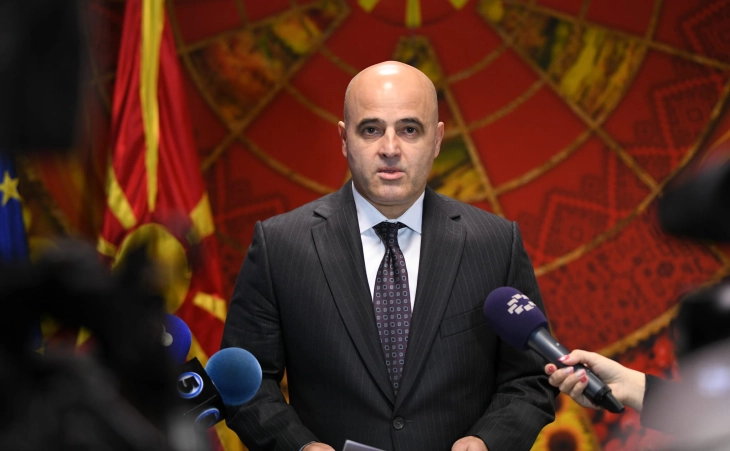Prime Minister Dimitar Kovachevski dismissed any prospect of changes in the negotiating framework or the enlargement process as illusory, asserting that such alterations would not benefit anyone. When asked to comment on the recent statement by the President of the European Council regarding the complexity surrounding enlargement decisions, Kovachevski highlighted the alignment of the EU’s internal preparation process for new member accession by 2030 and Macedonia’s reform goals within the same timeframe.
He pinpointed the obstruction to convening the second Intergovernmental Conference with the EU: a coalition in Macedonia opposing European, NATO, and pro-Russian affiliations. Kovachevski emphasized the necessity for constitutional amendments, characterized as technical, to precede the conference. He urged seizing the current opportunity window before elections in both Macedonia and the EU, drawing parallels to past delays in joining NATO due to similar obstacles.
Blaming the anti-EU, anti-NATO, and pro-Russian coalition of VMRO-DPMNE and Levica for impeding the country’s European aspirations, Kovachevski underscored the detrimental impact of their governance marked by false patriotism and populism. Despite these challenges, he highlighted positive discussions and ongoing support from European leaders for Macedonia’s EU trajectory, reaffirming the nation’s steadfast commitment to the European path.
He depicted the EU-Western Balkans Summit as an important platform to discuss the collective European future, stressing North Macedonia’s ambition for EU membership by 2030. Kovachevski reiterated the government’s dedication to securing a better life for citizens through European standards, values, and improved socio-economic conditions.
Additionally, he emphasized the summit’s significance in fostering cooperation among EU leaders and regional counterparts to tackle shared challenges. Kovachevski highlighted Macedonia’s alignment with the EU’s foreign and security policy, commitment to reforms, and international support, asserting the country’s unwavering dedication to European integration.
During his Brussels visit, Kovachevski engaged in brief meetings with key EU figures and regional leaders, discussing the nation’s European trajectory and collaborative strategies to address imminent challenges.






Comments are closed for this post.